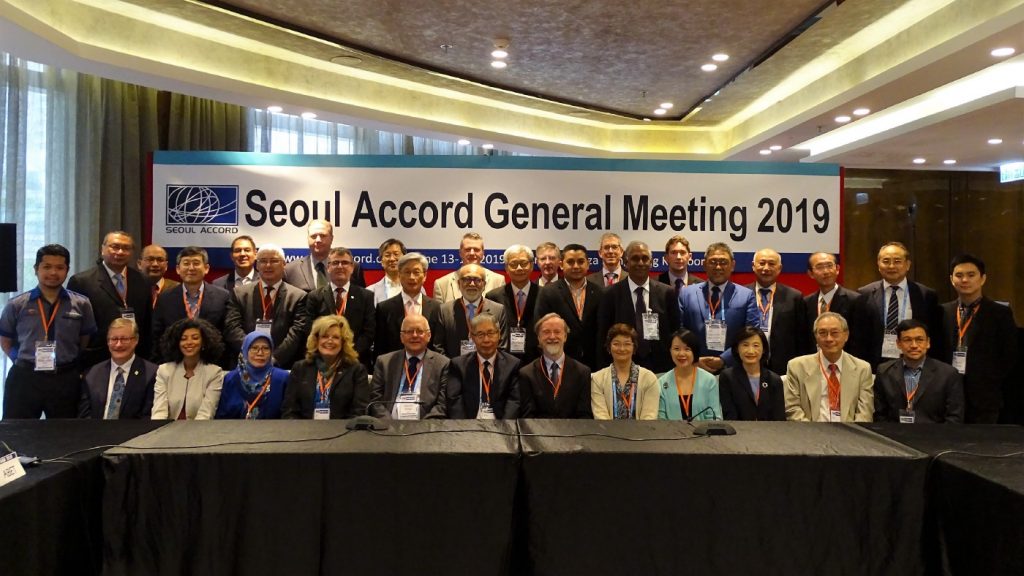Developments in technology have made the world a smaller, more connected place. Globalization inarguably has its advantages and disadvantages, but there is no denying that it has provided greater access to education and more mobility for graduates. Given these rapid changes, ABET and our counterparts around the world collaborated to create a series of “recognition” agreements. These Mutual Recognition Agreements, or “MRAs,” recognize the substantial equivalency of our organizations’ accreditation processes, and as a result, their graduates’ preparedness to begin professional practice. They are vital to ensuring global standards for engineering and computing education, graduate attributes and professional competences. They are also critical in promoting the mobility of technical professionals around the world.
These agreements expanded over the years and grew into the International Engineering Alliance (IEA), a governing umbrella organization that services the various accords and agreements. IEA and its members are committed to serving society by promoting global standards for engineering programs through the quality accreditation systems of its 27 members. The IEA now consists of seven multilateral agreements in engineering, engineering technology and professional licensure. ABET belongs to three: the Washington (engineering), Sydney (engineering technology) and Dublin (engineering technologist) Accords. In addition to the IEA agreements, we are part of the Seoul Accord, a multilateral agreement of eight accreditors focused on computing and IT-related qualifications. It has also grown significantly since its founding in 2008.
Last month, I attended our annual IEA and Seoul Accord meetings in Hong Kong and was amazed at the rapid growth of our agreements — over 200 delegates representing 37 jurisdictions from across the world joined us. We had several representatives from Central America, South America, Asia, Africa and Europe, in addition to IEA “Signatory” members in attendance. These representatives were all starting the process of becoming “Provisional Signatories” — the first step in the membership process (followed by rigorous formal reviews by in-country teams of accreditation experts from the other IEA members). This growth, and continued interest, tells me that the entire world is heavily invested in creating the best quality educational experience possible for our engineering and computing students. These students are our future tech workforce — one that will help solve the many complex problems facing our planet today, and tomorrow.

As an original member of the IEA and Seoul Accord, I find it satisfying to see membership and our influence growing as we continue to bring more partners into the alliances. We all share common goals: Working to prepare tomorrow’s computing professionals, engineers, technologists, technicians and scientists to do more than just master academic skills. We’re focused on educating students that their work will impact the transformation of our world.
Our annual meeting provides us an opportunity to learn from each other, and work toward our mutual goal of making the world a better place. Because despite differences in political systems and national policies, we are all striving for the same thing. It is through alliances such as these that we leverage our mutual goals, increase our impact and build a better world — together.